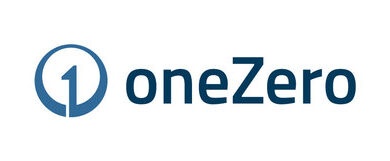SEC Insider Trading Charges Against BP Manager’s Husband Bring WFH Practices Into Sharp Focus

Photo illustration by Getty Creative
getty
Work from home or “WFH” practices within the global energy sector have been unwittingly called into sharp focus by the U.S. Securities and Exchange Commission.
That’s after the securities regulator charged the husband of a BP employee on Thursday (February 22, 2024) with insider trading, and profiting from information he overheard while his wife was working on a deal for the energy company from home in 2022-2023.
The SEC alleged Tyler Loudon of Houston, Texas, made $1.76 million in illegal profits having heard several of his wife’s conversations about an acquisition target for BP and bought shares in the firm.
At the time, Loudon’s wife, then a mergers and acquisitions manager at BP, was working the company’s takeover of TravelCenters, a Nasdaq-listed full-service travel center operator in the U.S. According to the SEC, Loudon purchased 46,450 shares of TravelCenters stock having overheard his wife’s conversations without her knowledge.
When BP went public with the $1.3 billion all-cash acquisition on February 16, 2023, and TravelCenters’ stock price rose nearly 71%, Loudon allegedly immediately sold all of his newly-bought shares for a profit, the SEC said.
“We allege that Mr. Loudon took advantage of his remote working conditions and his wife’s trust to profit from information he knew was confidential,” said Eric Werner, Regional Director of the SEC’s Fort Worth Regional Office. “The SEC remains committed to prosecuting such malfeasance.”
The complaint, filed in U.S. District Court for the Southern District of Texas, elaborated that during deal negotiations between TravelCenters and BP in 2022, Loudon and his wife worked in home offices “within 20 feet” of each other.
“As a result, they frequently overheard and witnessed each other’s work-related conversations and video conferences.” She also worked on the deal when the couple stayed in a “small Airbnb” in Italy, the complaint added.
Tremendous toll
Following an inquest instigation by the U.S. Financial Industry Regulatory Authority, Loudon confessed to his wife about buying the TravelCenters shares, who immediately reported the trade to her supervisor.
An internal review by BP found no evidence that she knowingly gave the information to her husband or even knew he had bought the shares. But the energy giant “nonetheless terminated her employment,” said the filing. According to The Guardian, the couple’s marriage has also since broken down.
Loudon did not deny the SEC allegations and has agreed to pay a penalty which may include returning the profits he made with interest. But alongside, the SEC’s move, the U.S. Attorney’s Office for the Southern District of Texas has also announced criminal charges against Loudon. If convicted, a jail sentence may follow.
M&A incompatible WFH?
The revelation is likely to cause introspection within the energy sector (and beyond), on WFH practices. The energy sector, in particular, has seen a flurry of M&A activity in recent months, and WFH is now commonplace ever since the COVID pandemic.
Securing confidential information about such deals is of paramount importance. It is why, even before this case became public, overtures were being made by employers both within and beyond the sector to get employees back into the office for at least three days per week.
There is now likely to be additional pressure with many investment banks and law firms – often central to M&A deals – already insisting on many of their employees working from the office, even five days a week, over security and confidentiality concerns.
The UK’s Financial Conduct Authority even raised the “need for effective surveillance at all times” in October 2020, well before the first COVID vaccines had even made their mark.
For its part, BP declined comment on the case. It still has a policy of allowing its employees to work from home, with secure protocols where logistically possible for up to two days a week. ChevronCVX and ExxonMobilXOM also have similar flexible working arrangements where feasible, while Shell expects that “office based roles are carried out with the majority of time spent from the office base.”
Others may now come to same conclusion. As with technology giants like Google’sGOOG parent company Alphabet and banking giant JPMorgan, the days of WFH, at least for senior managers at energy majors appear to be numbered.





